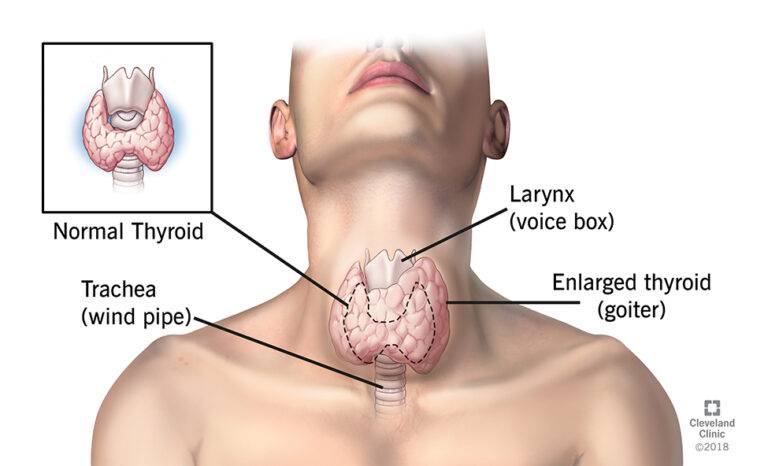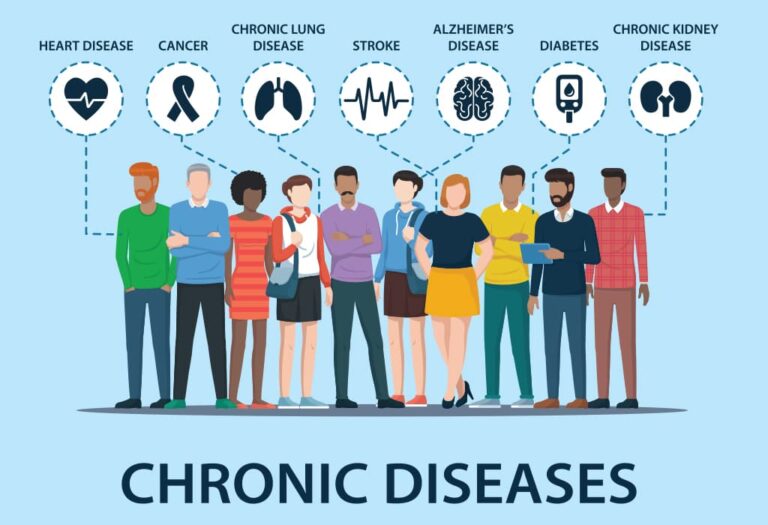Thyroid gland and its importance to the body
Author: Giselle Robel
Giselle Robel
Category: Health
The thyroid gland is situated at the front of the throat, below the larynx (Adam's apple). And comprises two lobes that lie on either side of the windpipe.

It secretes hormones to regulate many metabolic processes, including growth and energy expenditure.
Thyroid disorders are very common and tend mainly to occur in women. But, anybody like men, teenagers, children, and babies, can be affected too. About one in 20 people has some kind of disorder related to it, which may be temporary or permanent.
Some of the most common hormonal disorders are associated with it, which is part of the endocrine system. This system is a collection of glands that secrete chemicals called hormones directly into the bloodstream. Together with the nervous system and the immune system, the endocrine system helps the body cope with different events and stresses.
Iodine for hormone production
It produces two primary hormones – thyroxine (also referred to as T4) and tri-
iodothyronine (also referred to as T3). The numbers 3 and 4 refer to the
number of atoms of iodine in the hormones. Iodine is essential for the
production of thyroid hormones and humans need about 150 mcg (millionths of a
gram) each day. Seafood is one of the best sources of Iodine. Iodized salt is
the best way to supplement dietary iodine, but taking too much iodine can also
be a problem.
The greater the amount of T3 and T4 circulating in the blood, the faster the
metabolism. Lower amounts of T3 and T4 result in a reduced metabolism.

The pituitary gland
It is controlled by the pituitary, which is considered the master gland' of the endocrine system. The pituitary is located at the base of the brain. Its principal function is to monitor and regulate the activity of the other glands. The pituitary affects the thyroid gland by producing a hormone called thyroid-stimulating hormone (TSH), which prompts the thyroid to release more T4 and T3. If there is too much T4 circulates in the blood, the pituitary reduces the amount of TSH produced, which then causes thyroid activity to slow. If there is too little T4, the pituitary increases the amount of TSH. The Pituitary gland is the overseer part of the brain called the hypothalamus.
Goiter
Goiter when there’s an enlargement of the thyroid gland. A shortage of iodine in the diet is a common cause of goiter, especially in areas where the soil has less iodine. If a person's diet is too low in iodine, the pituitary keeps sending chemical messages to the thyroid, but without effect. In attempting to make more thyroid hormone, the gland gets larger and larger. This is also common with underactive thyroids, as the pituitary attempt to speed them up. Overactive thyroids can also produce goiters because over- activity is often due to over-stimulation. Goiters indicate a problem with the thyroid or iodine intake.
Overactive thyroid (hyperthyroidism)
An overactive thyroid releases too much T4 and T3 in the bloodstream, causing the metabolism to speed up too much. The most common cause is Graves' disease.
This is an autoimmune condition in which antibodies behave like TSH and stimulate the thyroid uncontrollably. Complications of untreated hyperthyroidism include liver damage and heart failure, which can lead to death. Symptoms include the following:
- Rapid pulse
- Tremor (shaking) of the hands
- Sweating and sensitivity to heat
- Weight loss (despite an increased appetite)
- Nervousness, agitation and anxiety
- Fatigue
- Diarrhoea
- Bulging eyes
- Goitre.
Underactive thyroid (hypothyroidism)
An underactive thyroid releases too little T4 and T3 into the bloodstream, causing the metabolism to slow down too much. The most common cause is Hashimoto's disease. This is an autoimmune condition in which white blood cells and antibodies attack the thyroid gland. If not treated, the metabolism will continue to slow and will ultimately (in 10 to 15 years) lead to death. Symptoms include:
- Lethargy and fatigue
- Feeling cold (even on warm days)
- Unusual weight gain
- Depression
- Reduced concentration (brain fog)
- Puffiness of the face
- Hair loss
- Dry skin
- Constipation
- Goiter.
Newborn screening is important to detect this condition.
What other disorders are there?
- Thyroid eye disease - this affects some people who have an overactive thyroid due to Graves' disease.
- Nodules or swellings - these lumps can stop the thyroid gland from working properly, or are simply uncomfortable.
- Thyroid cancer - this is very rare, but it is important to ask your doctor to check any lump in your neck.
- However, having a baby can sometimes trigger a thyroid disorder. It’s postpartum thyroiditis. It is usually temporary, but can return each time you have a baby.
Diagnosed
Although, your doctor will be able to get a good idea about the activity of your thyroid gland by listening to your symptoms, asking you some questions, and examining your neck. However, by taking a small sample of your blood, he or she can assess exactly your thyroid secretory state. And of course, how active the pituitary is by measuring the TSH. Even though, a single blood test will normally confirm the diagnosis.
Treatment
The presence of antibodies in the blood will confirm Graves' or Hashimoto's disease. Under-activity is treated by taking thyroxine tablets – a form of hormone replacement. Over-activity is treated with drugs. It will slow the activity of the gland.
Nodules and cancers are diagnosed with a variety of different tests. Such as ultrasound, special x-rays, and fine-needle biopsies.
Cancer is treated by removing the thyroid gland through a surgical procedure. And followed by treatment with radioactive iodine to destroy any cells which may have spread.
Taking iodine supplements can be dangerous for patients with Graves' disease or hot nodules.
Things to remember
- Firstly is, it regulates many metabolic processes, including growth and energy expenditure.
- And also around one in 20 people will experience some form of thyroid dysfunction in their lifetime.
- Another thing is most common problems include over-activity and under-activity of the thyroid gland.
- These conditions have a genetic link. People with a family history of thyroid conditions have a higher risk of also having a thyroid condition and other autoimmune conditions.













